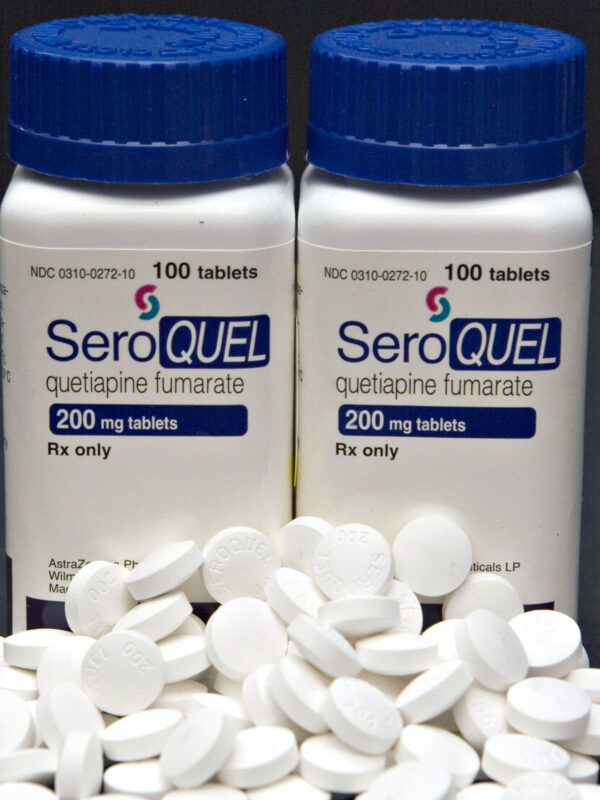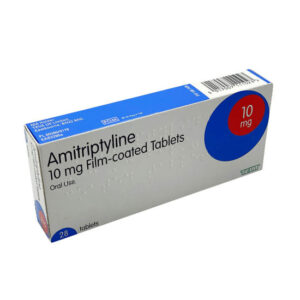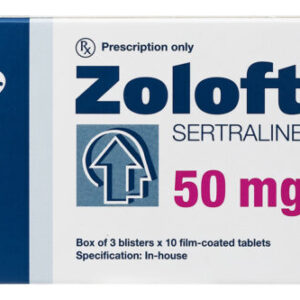Buy Seroquel Quetiapine Without Prescription
Order cheap Quetiapine Seroquel 25mg, 50mg, 100mg, 200mg, and 300mg discreetly online without a prescription, safely and reliably through our online pharmacy. Post Order Pharmacy is the best online pharmacy to buy authentic antidepressants, verified and approved by reputable and certified laboratories.
Post Order Pharmacy is the best online retailer with discounts and worldwide shipping. We are the best Quetiapine seller for fast, easy, and prescription-free purchases.
Post Order Pharmacy makes every effort to ensure a convenient and comfortable shopping experience for customers. The site is user-friendly and specifically designed to make shopping easy for customers.
When buying Concerta pills, affordability is a factor many people look for. As a result, consumers tend to choose cheaper companies and suppliers. When it comes to cost, postorderapotheek.com isn’t far behind other major Seroquel medication companies. It offers low, competitive prices and discounts.
Quetiapine tablets
Quetiapine is an antipsychotic medication that treats various mental health conditions, including schizophrenia and bipolar disorder. It balances dopamine and serotonin levels in your brain. These hormones help regulate your mood, behavior, and thoughts. The brand name of this medication is Seroquel®.
What is this medicine?
QUETIAPINE treats schizophrenia and bipolar disorder. It works by balancing the levels of dopamine and serotonin in your brain, hormones that help regulate mood, behavior, and thoughts. It belongs to a group of medications called antipsychotics. Antipsychotics can be used to treat various types of mental health conditions.
This medicine may be used for other purposes; ask your healthcare provider or pharmacist if you have any questions.
COMMON BRAND NAME(S): Seroquel
What should I tell my healthcare team before taking this medicine?
They need to know if you have any of these conditions:
- Blockage in your intestines
- Cataract
- Constipation
- Dementia
- diabetes
- Difficulty swallowing
- Glaucoma
- Heart disease
- High levels of prolactin
- History of breast cancer
- History of irregular heartbeat
- Liver disease
- Low blood cell counts, such as the number of soft white blood cells, platelets, or red blood cells
- Low blood pressure
- Parkinson’s disease
- Prostate disease
- To attack
- Suicidal thoughts, plans or attempts; a previous suicide attempt by you or a family member
- Thyroid disease
- Difficulty urinating
- An unusual or allergic reaction to quetiapine, other medicines, foods, dyes, or preservatives
- Pregnant or trying to conceive
- Breastfeeding
Quetiapine Seroquel dosage
Take this medication by mouth. Swallow it with a drink of water. Follow the directions on the prescription label. If it upsets your stomach, you can take it with food. Take your medication at regular intervals. Do not take it more often than directed. Do not stop taking it except on the advice of your healthcare team.
With every prescription and refill, your pharmacist will give you a special MedGuide. Be sure to read this information carefully each time.
Talk to your healthcare team about using this medication in children. While this medication may be prescribed for children as young as 10 years of age for selected conditions, precautions do apply.
Patients over 65 years of age may have a stronger response to this medicine and require smaller doses.
Overdose: If you take too much of this medicine, contact a poison control center or emergency room right away.
NOTE: This medicine is only for you. Do not share this medicine with others.
What if I miss a dose?
If you miss a dose, take it as soon as possible. Only take that dose if it’s almost time for your next dose. Don’t take double or extra doses.
What may interact with Quetiapine Seroquel?
Do not use this medicine with any of the following:
- cisapride
- Dronedarone
- Metoclopramide
- Pimozide
- Thioridazine
This medicine may also interact with the following:
- Alcohol;
- Antihistamines for allergies, coughs and colds;
- Atropine;
- Avasimibe;
- Specific antiviral agents for HIV or hepatitis;
- Certain medications for anxiety or sleep;
- certain medications for bladder problems, such as oxybutynin and tolterodine;
- Certain medications for depression, such as amitriptyline, fluoxetine, nefazodone, and sertraline;
- Certain medications for fungal infections such as fluconazole, ketoconazole, itraconazole, posaconazole;
- Certain medications for stomach problems, such as dicyclomine and hyoscyamine;
- Certain medications for motion sickness, such as scopolamine;
- cimetidine;
- General anesthetics such as halothane, isoflurane, methoxyflurane and propofol;
- Ipratropium;
- Levodopa or other medications for Parkinson’s disease;
- Blood pressure medications;
- Medicines for seizures;
- Medicines that relax muscles before surgery;
- Narcotic drugs for pain;
- Other medications that prolong the QT interval (cause an abnormal heart rhythm);
- Phenothiazines such as chlorpromazine and prochlorperazine;
- Rifampicin;
- St. John’s wort;
This list may not describe all possible interactions. Give your healthcare provider a list of all medications, herbs, over-the-counter drugs, or dietary supplements you are taking. Also tell them if you smoke, drink alcohol, or use illegal drugs. Some items may interact with your medication.
What should I pay attention to while taking Quetiapine Seroquel?
Visit your healthcare team for regular checkups on your progress. Tell your healthcare team if your symptoms don’t improve or if they get worse. Don’t stop taking the medication unless advised by your healthcare team. You could develop a severe reaction. Your healthcare team will tell you how much medication to take.
You may need to have an eye exam before and during use of this medicine.
This medication may increase blood sugar levels. Ask your healthcare team if changes in diet or medication are necessary if you have diabetes.
Patients and their families should be on the lookout for new or worsening depression or suicidal thoughts. Also watch out for sudden or severe changes in feelings, such as feeling anxious, agitated, panicky, irritable, hostile, aggressive, impulsive, severely restless, overly excited, hyperactive, or unable to sleep. If this happens, especially at the beginning of antidepressant treatment or after a dose change, call your healthcare team.
You may become dizzy or drowsy. Do not drive, operate machinery, or do anything that requires mental alertness until you know how this medication affects you. Do not stand or sit up quickly, especially if you are an older patient. This reduces the risk of dizziness or fainting. Alcohol can interfere with the way this medication works. Avoid alcoholic beverages.
This medication can cause problems with your body temperature control. It can reduce your body’s response to cold temperatures. Stay indoors in cold weather if possible. If you must go outside, wear warm clothing. It can also reduce your body’s response to heat. Do not overheat. Do not exercise too much. Stay out of the sun if possible. If you must be in the sun, wear cool clothing. Drink plenty of water. Call your healthcare team immediately if you have difficulty controlling your body temperature.
Quetiapine Seroquel side effects
Side effects that you should report to your healthcare team as soon as possible:
- Allergic reactions – rash, itching, hives, swelling of the face, lips, tongue or throat.
- Heart rhythm changes – fast or irregular heartbeat, dizziness, fainting or lightheadedness, chest pain, trouble breathing.
- High blood sugar (hyperglycemia) – increased thirst or amount of urine, unusual weakness or tiredness, blurred vision.
- High fever, stiff muscles, increased sweating, fast or irregular heartbeat, and confusion may be signs of neuroleptic malignant syndrome.
- High prolactin – unexpected breast tissue growth, nipple discharge, change in sex drive or performance, irregular menstrual cycles.
- Increased blood pressure in children.
- Infection – fever, chills, cough or sore throat.
- Low blood pressure – dizziness, feeling faint or light-headed, blurred vision.
- Low thyroid levels (hypothyroidism) – unusual weakness or tiredness, increased sensitivity to cold, constipation, hair loss, dry skin, weight gain, feeling depressed.
- Pain or difficulty swallowing.
- To attack.
- Stroke – sudden numbness or weakness of the face, arm or leg, difficulty speaking, confusion, difficulty walking, loss of balance or coordination, dizziness, severe headache, change in vision.
- Sudden eye pain or change in vision, such as blurred vision, seeing halos around lights, and loss of vision.
- Thoughts of suicide or self-harm, worsening mood, feeling depressed.
- Difficulty urinating.
- Uncontrolled and repetitive body movements, muscle stiffness or spasms, tremors or shaking, loss of balance or coordination, restlessness, and shuffling gait may be signs of extrapyramidal symptoms (EPS).
Side effects that usually do not require medical attention (report to your healthcare team if they persist or are bothersome):
- Constipation
- Dizziness
- Drowsiness
- Dry mouth
- Weight gain
This list may not describe all possible side effects. Call your doctor for medical advice about any side effects.
Where should I store my medication?
Keep out of reach of children.
Store at room temperature between 15 and 30 degrees C (59 and 86 degrees F). Discard any unused medication after the expiration date.
NOTE: This sheet is a summary. It may not contain all possible information. If you have any questions about this medicine, ask your doctor, pharmacist, or healthcare provider.



